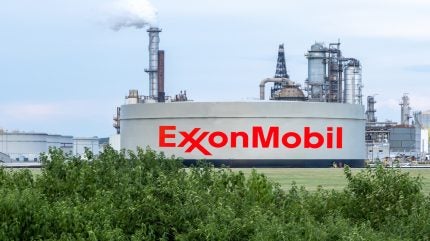
Nigeria’s regulatory authorities have approved the sale of ExxonMobil’s assets to Seplat Energy while halting Shell‘s planned divestment of its onshore and shallow-water operations, reported Reuters.
Nigerian Upstream Petroleum Regulatory Commission CEO Gbenga Komolafe announced the developments, highlighting the contrasting outcomes for two major oil companies in the country.
The Shell transaction, valued at up to $2.4bn (£1.84bn), was initially unveiled in January and involved the sale to a consortium named Renaissance, which comprises five companies.
In contrast, Exxon’s $1.28bn deal with Seplat Energy has been awaiting approval since February 2022.
Now, with the regulatory nod, Seplat is set to acquire significant assets including a 40% stake in four oil mining leases and the Qua Iboe export terminal, as well as a 51% interest in the Bonny River natural gas liquids recovery plant.
Komolafe, speaking at an event in Abuja, said that the Shell deal “could not scale (the) regulatory test”, offering no further details.
How well do you really know your competitors?
Access the most comprehensive Company Profiles on the market, powered by GlobalData. Save hours of research. Gain competitive edge.

Thank you!
Your download email will arrive shortly
Not ready to buy yet? Download a free sample
We are confident about the unique quality of our Company Profiles. However, we want you to make the most beneficial decision for your business, so we offer a free sample that you can download by submitting the below form
By GlobalDataMeanwhile, Exxon has expressed its satisfaction with the decision, stating: “We welcome the regulator’s announcement and look forward to formally receiving the ministerial consent as we work toward the conclusion of the sale.”
The rejection of Shell’s sale is a significant setback for the company’s strategy to transition towards deep-water investments and underscores the complexities oil companies face in Nigeria.
The Shell assets are estimated to contain a total of 6.73 billion barrels of oil and condensate, along with 56.27 trillion cubic feet of associated and non-associated gas.
Oil majors like Shell have been gradually retreating from Nigeria’s onshore operations, which have been plagued by theft and sabotage.
Companies are instead opting to invest in offshore fields, which are considered more secure and profitable. This move aligns with the actions of other industry players such as TotalEnergies and Eni, who have also sought to exit the oil-rich Niger Delta region due to security issues.
Environmental concerns have also played a role in the opposition to Shell’s divestment. Activists and local communities have tied Shell to numerous lawsuits demanding environmental restoration and compensation for damages caused by oil spills.


